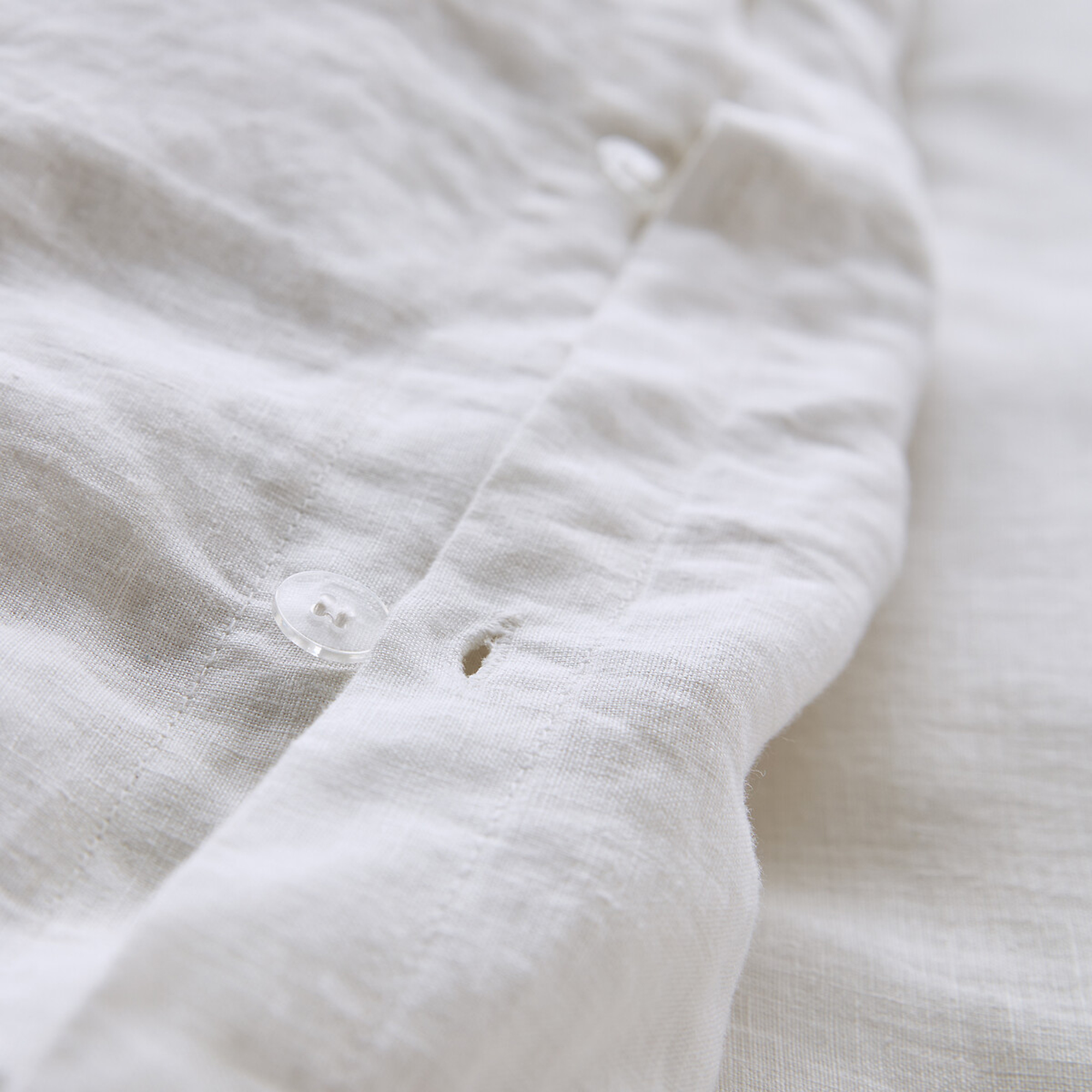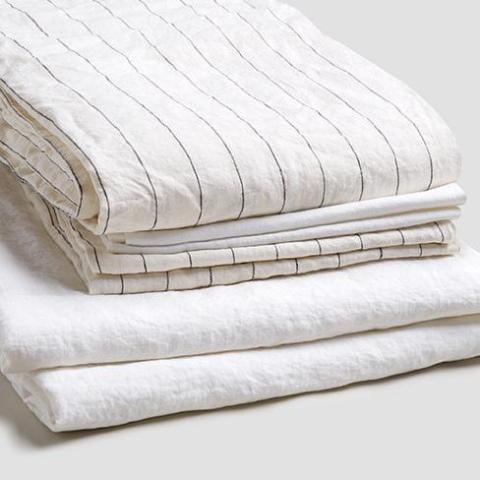I’m a hot sleeper, or rather I was – this bedlinen has made overheating a thing of the past
If, like me, you're a hot sleeper, this is my top tip for sleeping cooler this summer
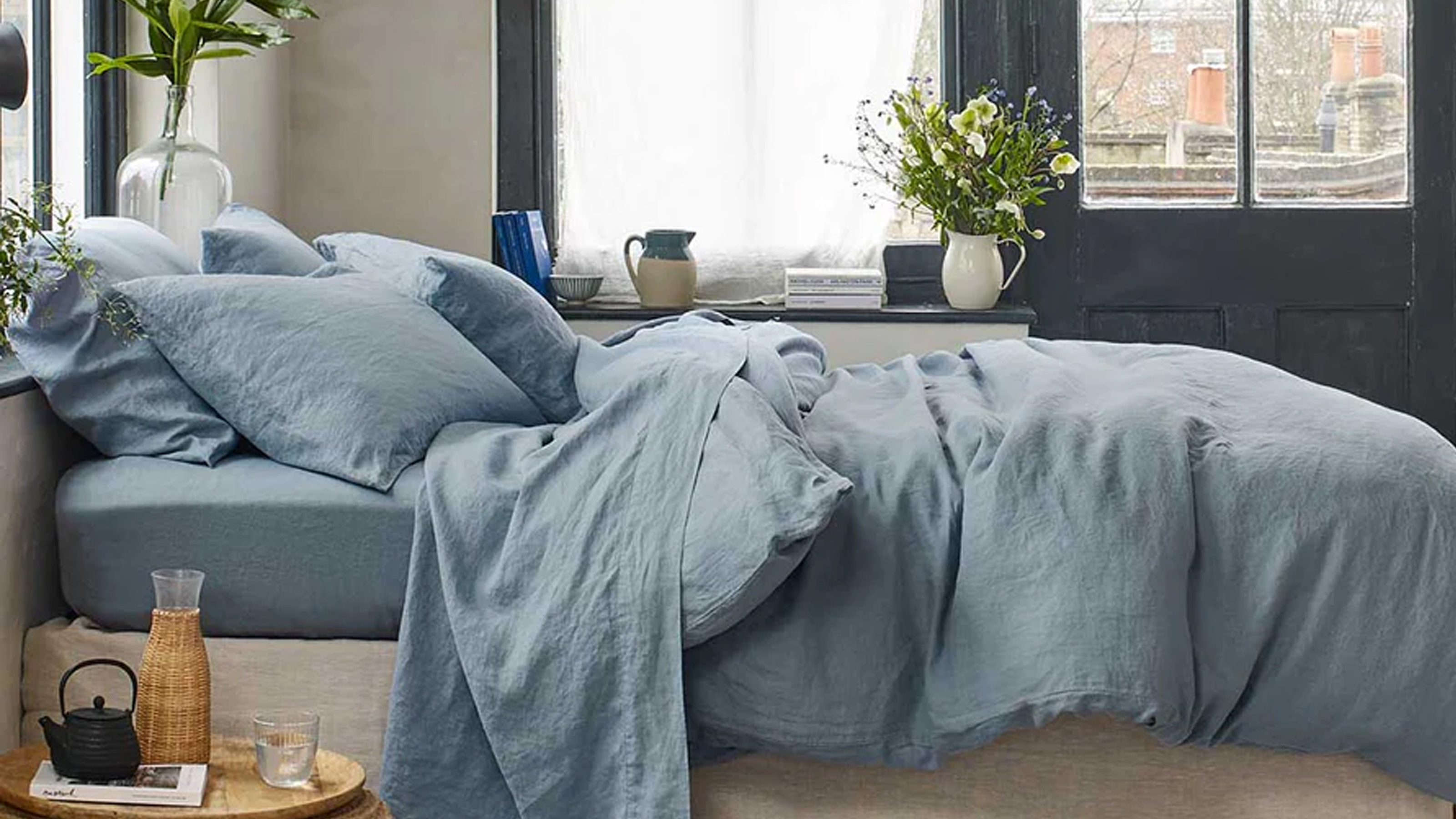

I’m a hot sleeper, in fact I’m pretty warm-blooded in general, and tend to run warm when most people report feeling a little chilly.
I don’t need there to be a heatwave to find myself waking up in the middle of the night a hot and sticky mess and kicking off the sheets to get some cool air on my skin.
Broken sleep is one of the biggest causes of tiredness, so this pattern definitely isn’t ideal, but, as a hot sleeper, I thought this was just something I had to accept. That was until I encountered linen bedding.
As Ideal Home’s Sleep Editor I get to test out all kinds of products for our guides to the best duvets, best pillows, and where to buy the best bedding. This is when I came across the answer to how to sleep better – which for me meant finding the bed linen that finally helped me to sleep cooler.
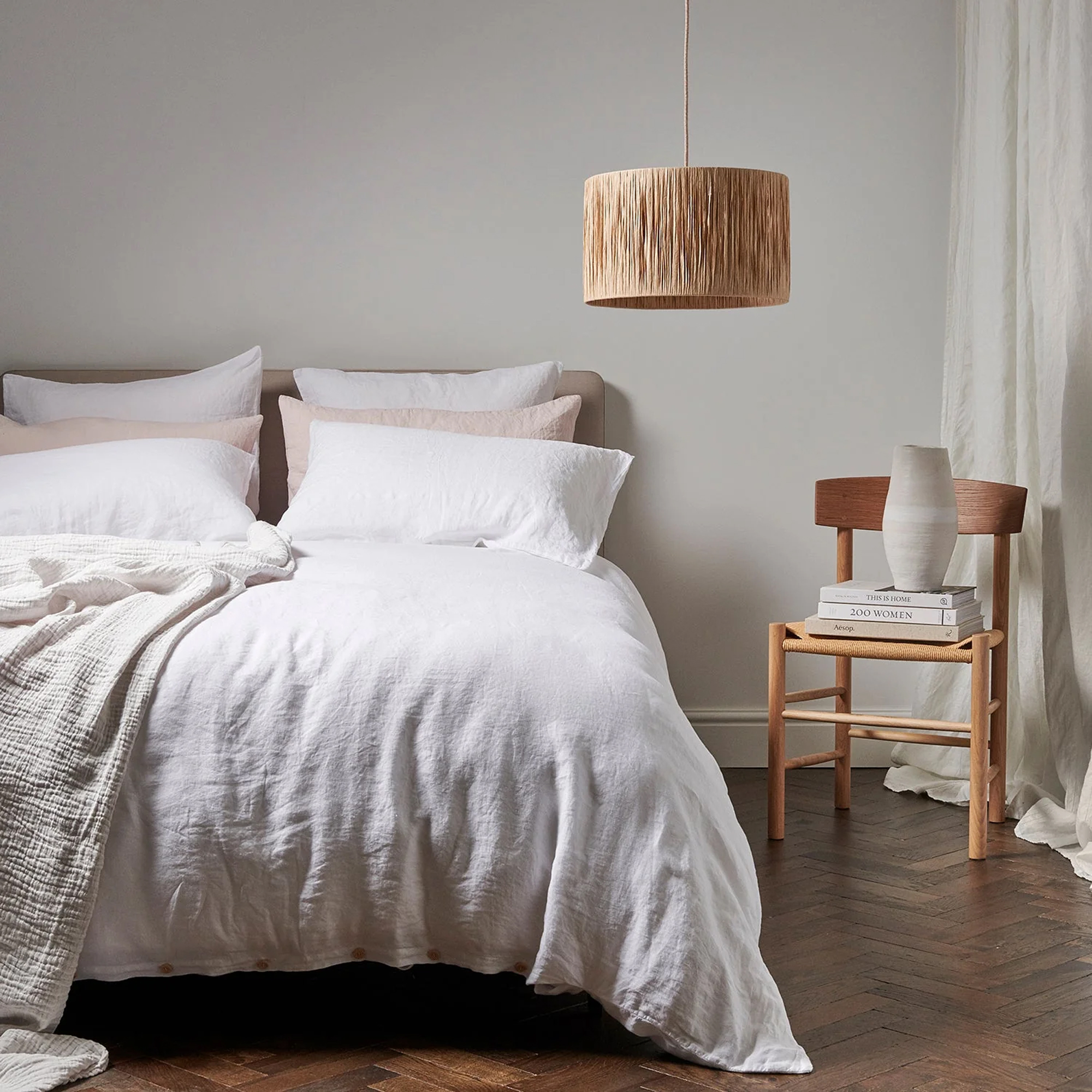
Why linen bedding is great for hot sleepers
There isn’t just one factor that helped me transform from a hot sleeper to someone who slept cool overnight, but linen bedding has definitely been a key part of the puzzle.
Finding the ideal bedroom temperature and figuring out how to keep a bedroom cool can help, but when summer kicks in and the mercury begins to soar, these linen bedding sets are the first thing I reach for.
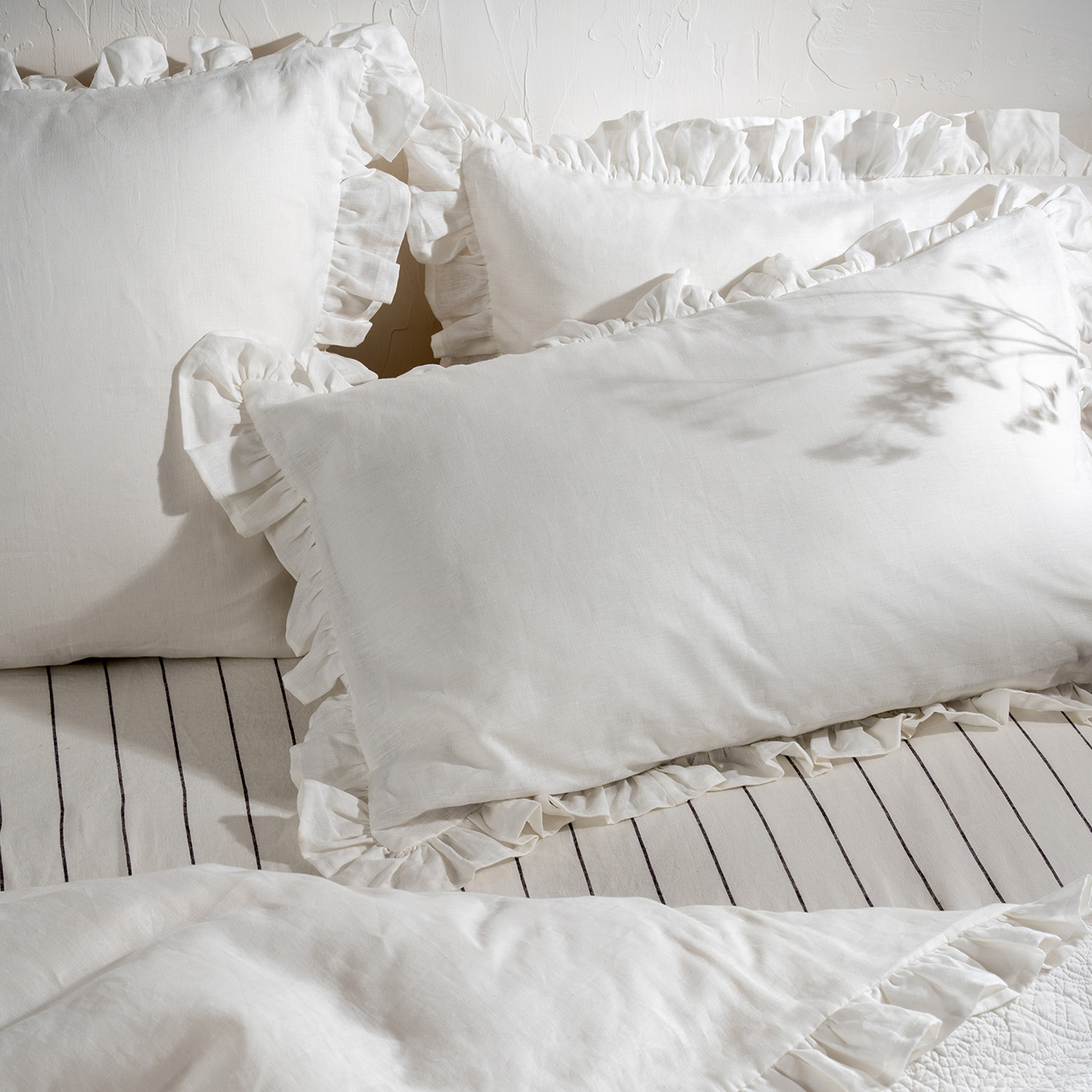
Soak & Sleep's French Linen bedding is great value. I have the white set, and find it super lightweight and breathable.
But how did swapping to a linen duvet cover and bed sheets transform my sleep quality? I’ve enlisted the help of various bedding experts to help me explain.
Get the Ideal Home Newsletter
Sign up to our newsletter for style and decor inspiration, house makeovers, project advice and more.
Linen is highly breathable
The main reason that linen is such a wonder fabric for hot sleepers is because it's one of the most breathable bedding fabrics out there.
'Made from the flax plant, linen's unique weave and long natural fibers allow air to flow through the fabric freely' says Jessica Hanley, Founder and CEO, of bed linen manufacturer Piglet in Bed. This means that body heat doesn't get trapped under the covers as we sleep but is able to dissipate away during the night – ideal for those of us who tend to sleep warm.
Chris Tattersall, Sleep Expert and MD of bedding brand Woolroom agrees, explaining that it's the fabric's 'loose weave that promotes airflow'.
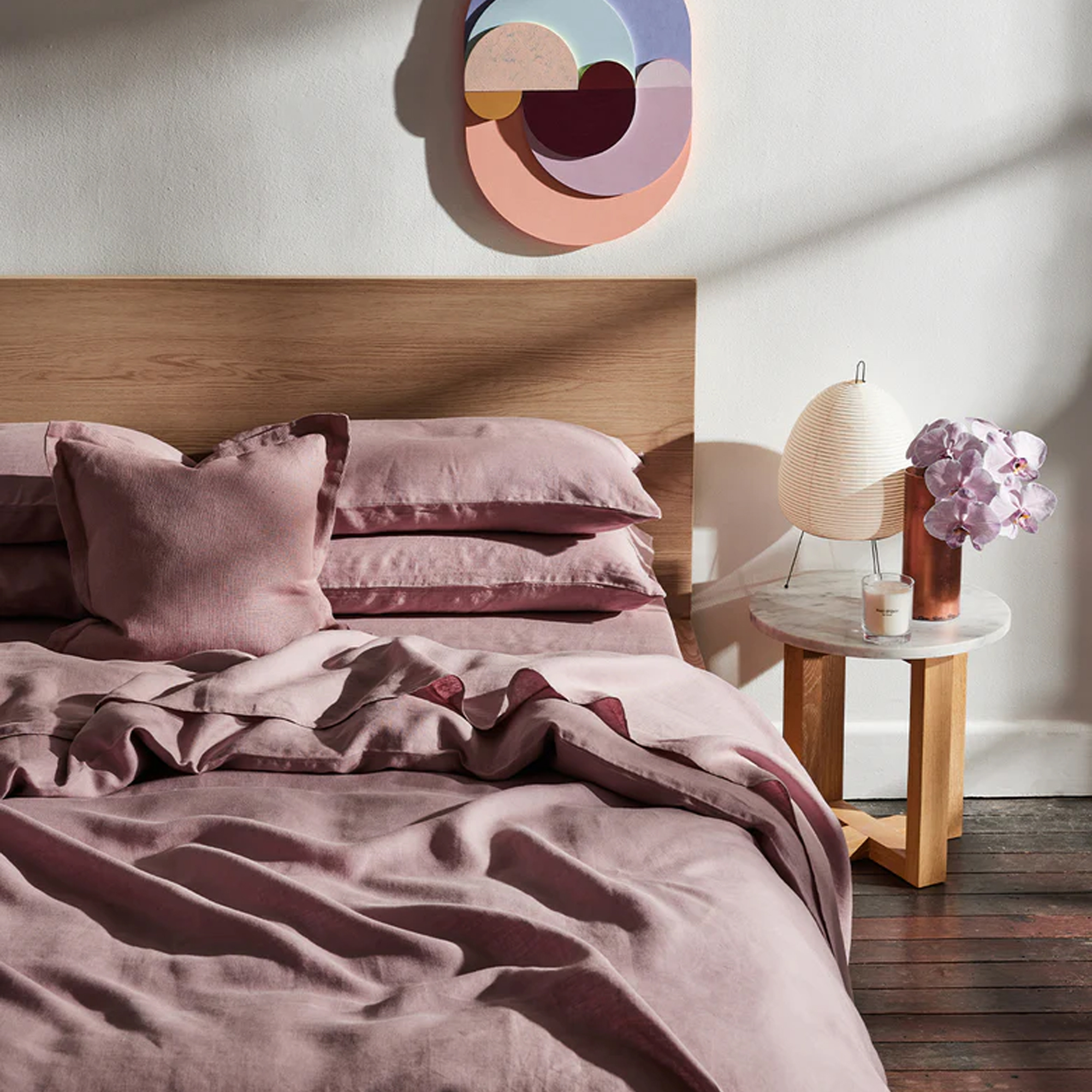
Whilst Soile Makkonen, Founder of linen specialists Ada & Ina, explains that this isn't the only reason we sleep cooler under a linen duvet or sheet. The structure of the fibres themselves also play a part.
'Linen is exceptionally breathable, allowing air to circulate easily through the fabric. The structure of flax fibres (from which linen is made) contributes to its cooling properties. These fibres are hollow and can trap air, providing natural insulation and breathability. This unique structure helps to keep you cool during hot summer nights by preventing heat from being trapped around your body', she explains.
And, although it may sound counterintuitive, it's these hollow fibres that also make linen bedding a great choice all year round, as in cooler temperatures, its insulating properties help to trap warmth.
'Linen bedding adjusts to body temperature, cooling you down if you're too hot, and offering warmth if it's cold - perfect for year-round sleeping' agrees James Montgomery-Castle, Junior Buyer at bedding retailer Soak & Sleep.
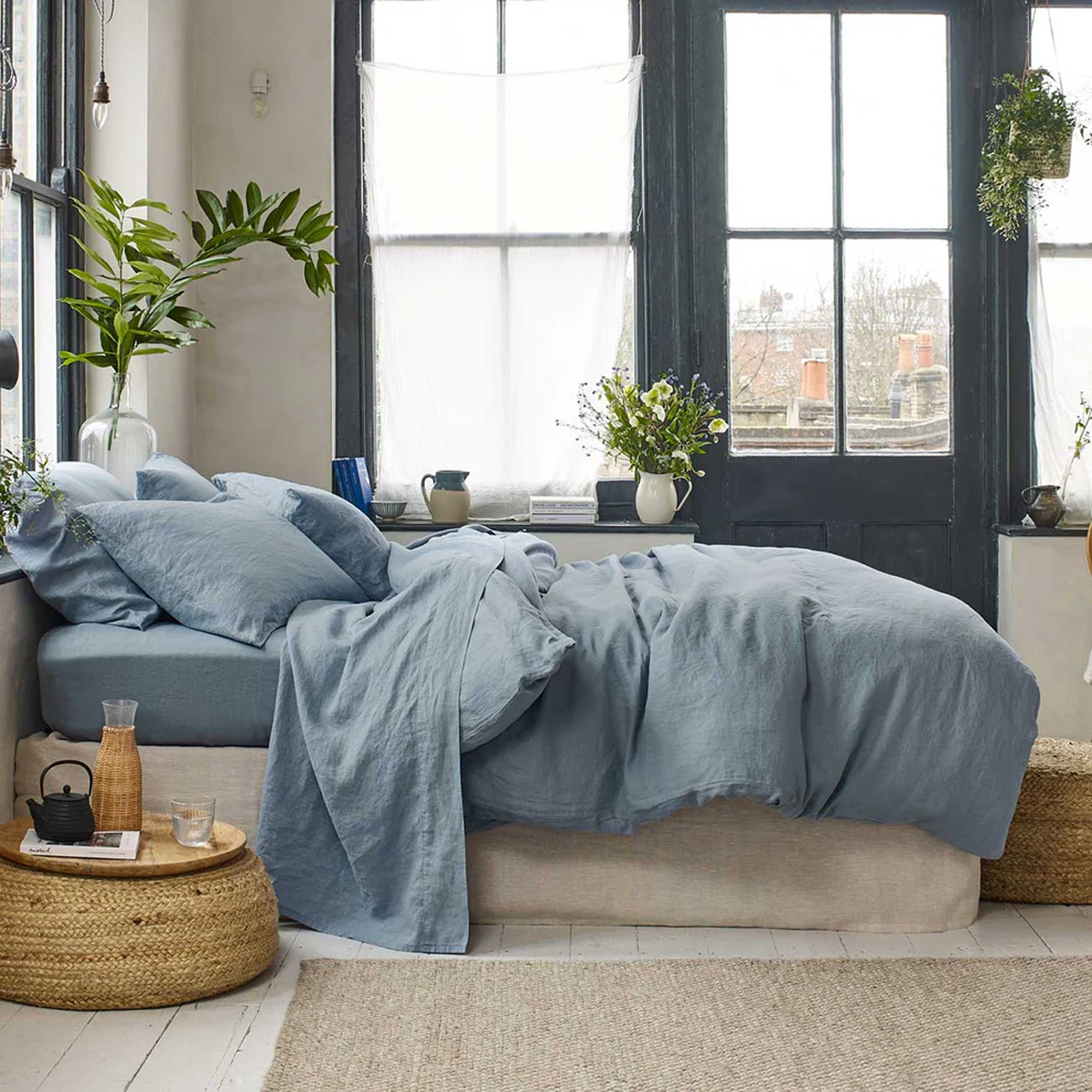
Linen is great at moisture regulation
However, waking up in the middle of the night due to overheating isn't all about temperature.
Getting too warm and not being able to regulate our temperature makes us sweat, and even if you're not prone to this level of overheating, all of our bodies release humidity and moisture. If this moisture can't dissipate, that's when we tend to wake up in a hot and sticky 3am mess.
Thankfully, linen is also a great fabric for moisture control. 'Linen fibres are highly absorbent and quickly draw moisture away from the skin', says Chris from Woolroom. 'This helps to keep you cool and dry throughout the night'.
'The fabric's fibers can soak up about one-fifth of their weight in water', agrees Jessica of Piglet in Bed, 'meaning any sweat that appears on your skin’s surface is wicked away sharpish'.
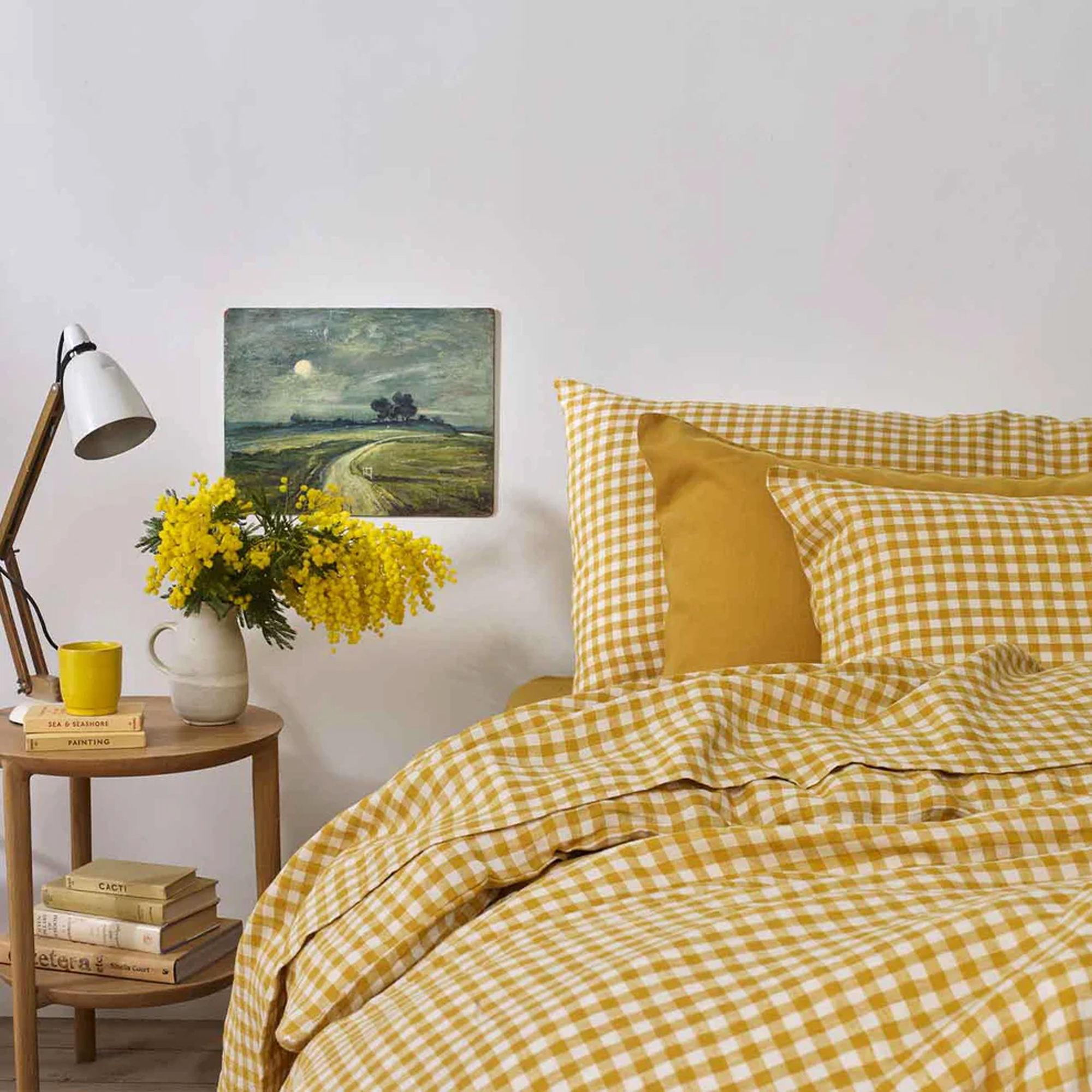
Soile of Ada & Ina goes on to explain that as well as 'linen being able to absorb a significant amount of moisture – up to 20% of its weight – without feeling damp, it also dries quickly, which is advantageous if you perspire at night. This quick-drying property ensures that your bedding remains fresh and comfortable, rather than becoming clammy or damp'.
Having slept under linen during several heatwaves, I can confirm that this is true. I found linen bedding brilliant at preventing me from getting hot and sticky in the first place, and it never felt uncomfortably damp during those nights when the mercury really soars and perspiration is impossible to avoid.
Linen has plenty more plus points
If you're a hot sleeper like me, then in my opinion linen sheets and duvet cover are an investment that's well worth making. However, breathability and moisture regulation aren't the only thing this bedding has in its favour.
'Linen is incredibly durable and becomes softer with every wash, providing long lasting comfort' says, Woolroom's Chris Tattersall.
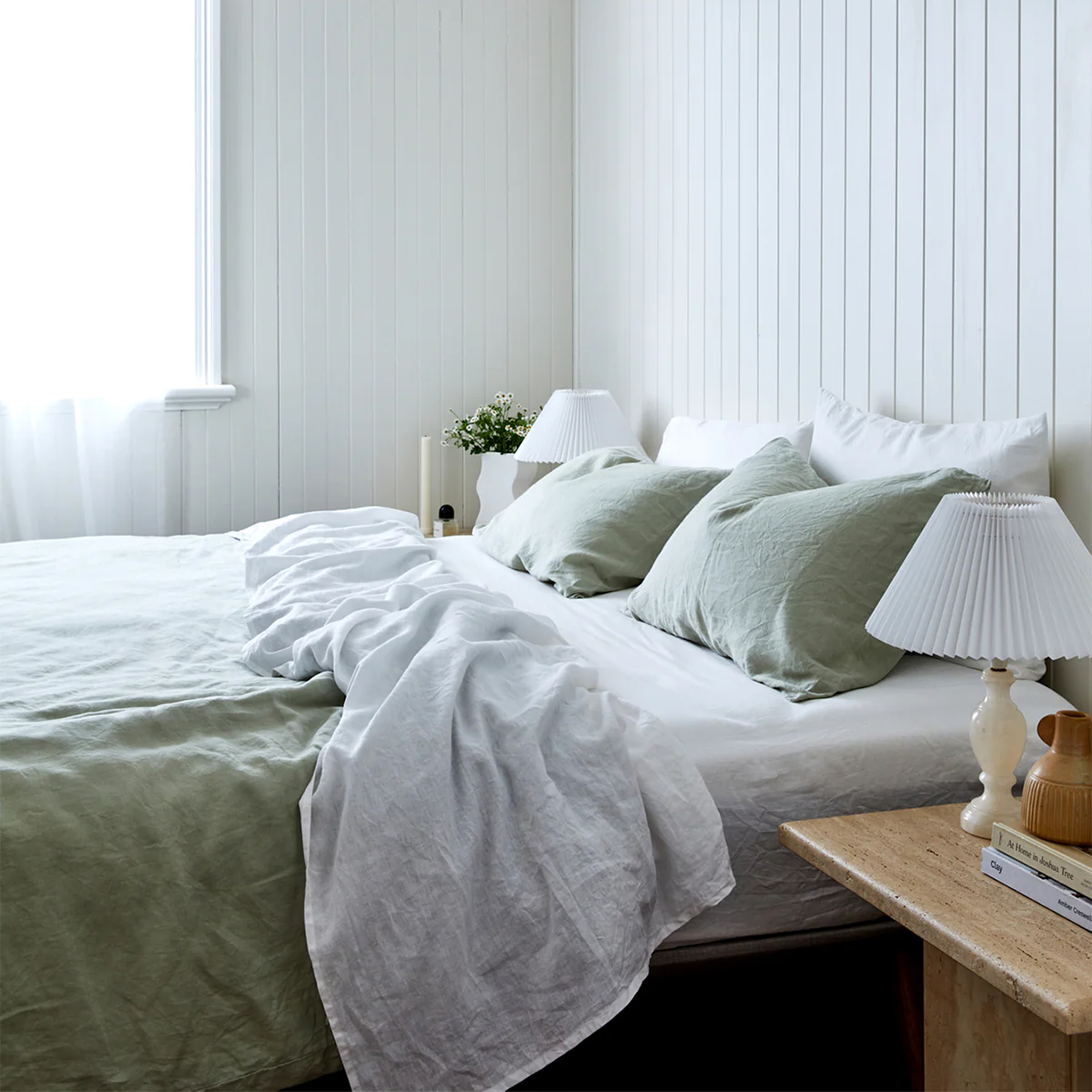
'Cotton is also durable but can wear out faster than linen with frequent washing, especially high-thread-count cotton sheets', agrees Soile Makkonen of Ada & Ina.
Jessica of Piglet in Bed is also a fan of how low maintenance linen is, and I'm certainly a fan of the fact linen bedding still looks great without any ironing. 'The fabric's natural crinkles evoke the same calming feelings that arise when you spend time in nature, making it so inviting' Jessica enthuses.
Lastly, Jo James, Founder & Creative Director of Bedfolk, advises us to 'look out for linens made from Belgian and French flax, which are the highest quality and just get softer with use – if cared for properly, quality linen sheets can be passed down for generations. I’d recommend ‘garment washed linen’ for a super-soft, vintage feel from night one'.
Where to shop linen bedding
- Ada & Ina: French linen bedding
- Bedfolk: great colour options
- Bedthreads: French flax linen
- John Lewis: multiple brands
- M&S: relatively affordable
- La Redoute: on-trend colours
- Piglet in Bed: stripes and gingham
- Soak & Sleep: great value linen
- Woolroom: cotton and flax mix
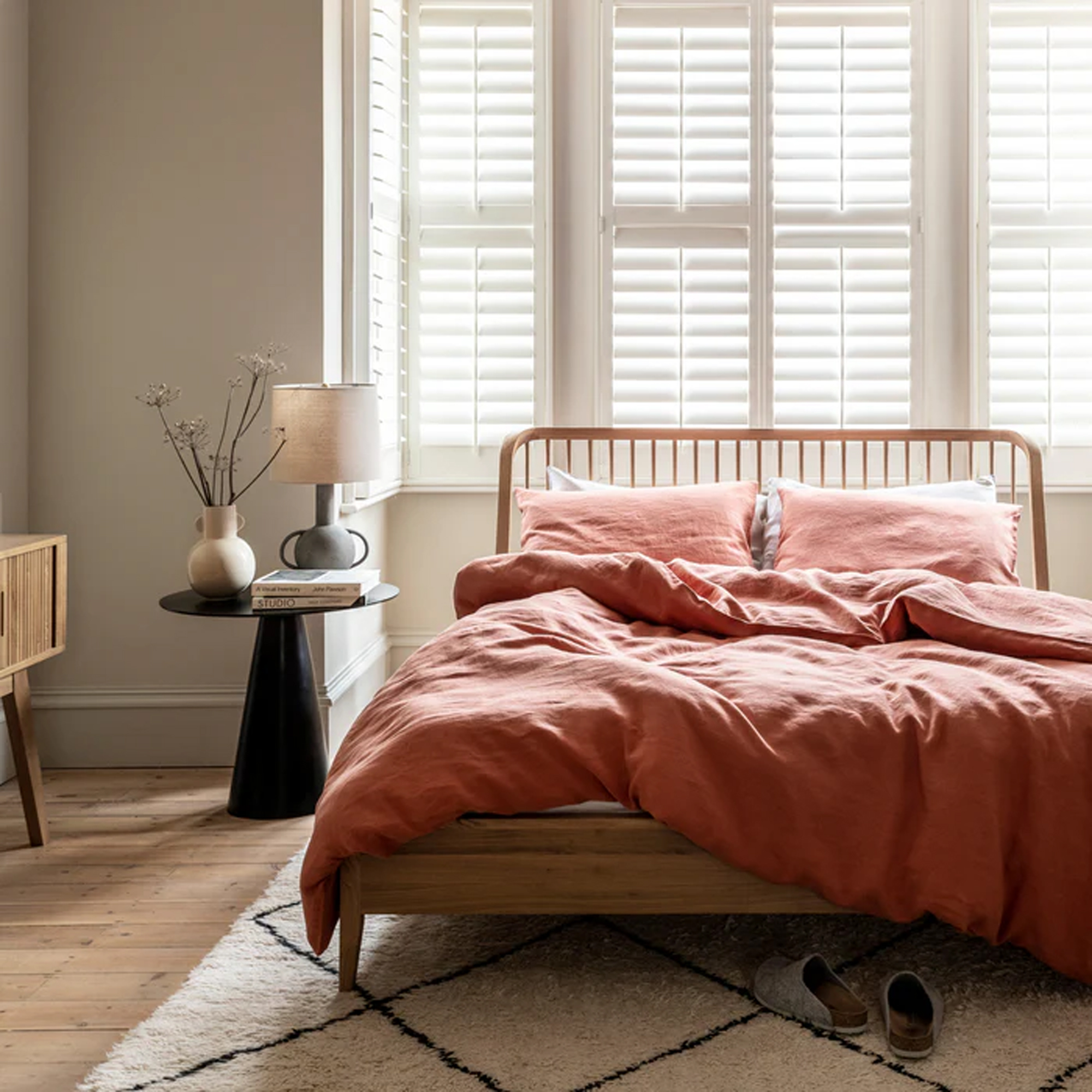
Lastly, there is one caveat to this advice. If you're a hot sleeper then it will pay to address all aspects of your sleep set-up to ensure that your bedding is offering you the coolest sleep possible. For instance, if you buy linen bedlinen but are using it over a synthetic duvet or a dense memory foam mattress, then breathability will likely still be impaired.
Instead, opting for one of the best mattresses for hot sleepers – like a mattress made from breathable natural materials – and one of the best duvets for hot sleepers – such as a breathable and naturally temperature-regulating wool-filled duvet – will give you the foundation for a cool and restful night's sleep. If your budget won't stretch to a whole new mattress right now, then one of the best cooling mattress toppers could also help.
Then your linen bedlinen will be the breathable cherry on the cake.

Amy is Ideal Home’s Sleep Editor and the Ideal Home Certified Expert on Sleep. She's spent the last four years researching and writing about what makes for the best night’s sleep during the day and testing out sleep products to find the best-in-class by night. So far she’s clocked up over 10,000 hours of pillow, duvet, and mattress testing experience.
Our go-to for all things sleep-related, she’s slept on and under bestselling products from Simba, Emma, Hypnos, Tempur, Silentnight, Panda, and many many more.
As a hot sleeper, Amy is always on the lookout for the most breathable bedding, but she also leads a wider team of testers to ensure our product testing encompasses both hot sleepers, cold sleepers, front sleepers, back sleepers, side sleepers, and everything in-between.
-
 Should your front door colour match your hallway? Interior experts reveal 3 reasons why it should (and 3 reasons it shouldn't)
Should your front door colour match your hallway? Interior experts reveal 3 reasons why it should (and 3 reasons it shouldn't)Are you team matching or contrasting?
By Ellis Cochrane
-
 This £200 limited-time discount makes this Dyson vacuum cheaper than I’ve ever seen it - run don’t walk to Argos for this bargain
This £200 limited-time discount makes this Dyson vacuum cheaper than I’ve ever seen it - run don’t walk to Argos for this bargainIt's the most affordable Dyson on the market right now
By Lauren Bradbury
-
 Martin and Shirlie Kemp’s pastel flower beds has given their Victorian renovation a romantic look - how you can get the look
Martin and Shirlie Kemp’s pastel flower beds has given their Victorian renovation a romantic look - how you can get the lookTheir pastel garden is the cottage garden inspo you've been looking for
By Kezia Reynolds
-
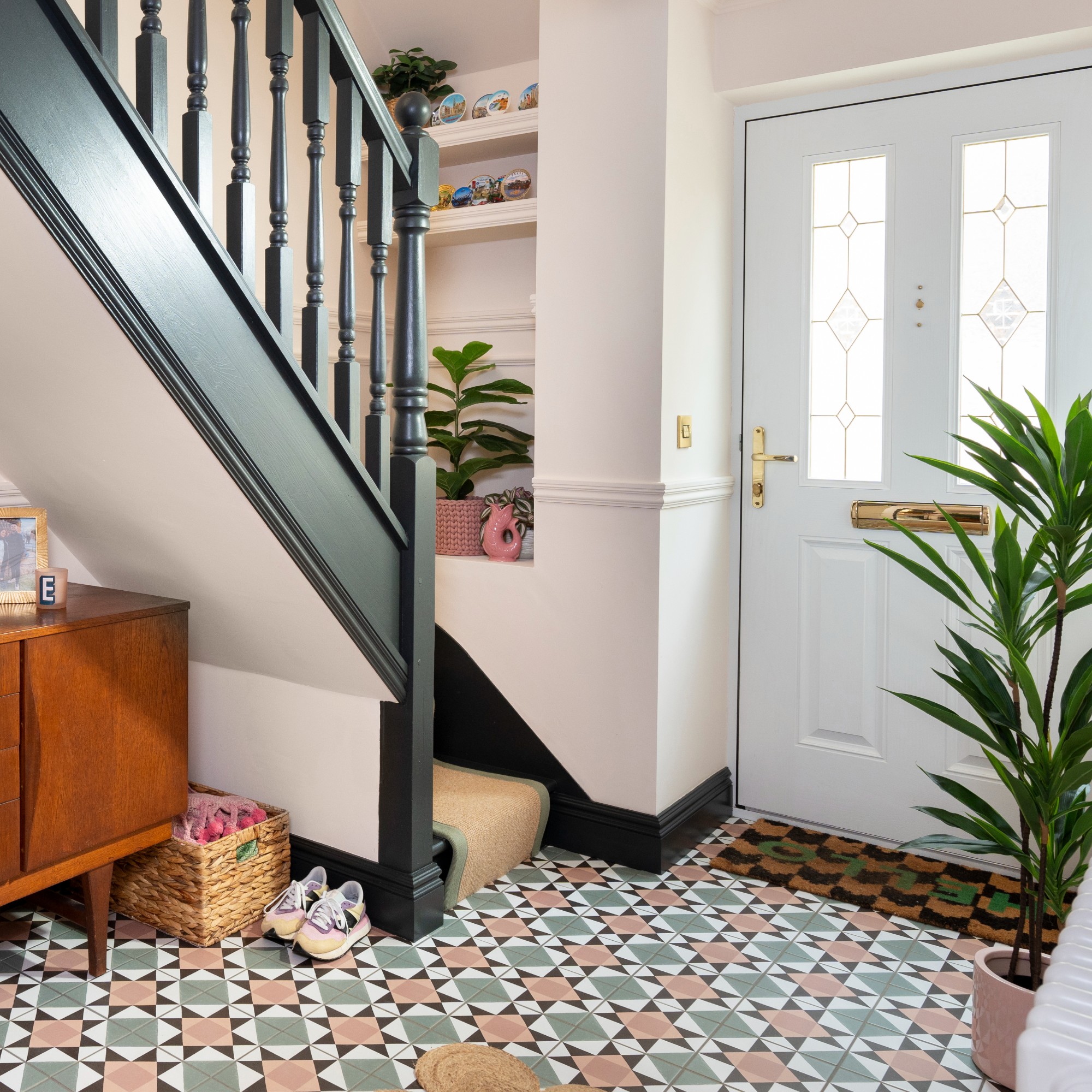 Should your doormat go inside or outside the front door? According to experts I've been getting it wrong for years
Should your doormat go inside or outside the front door? According to experts I've been getting it wrong for yearsExperts reveal the best spot for a a doormat based on your preferences and where you live
By Sara Hesikova
-
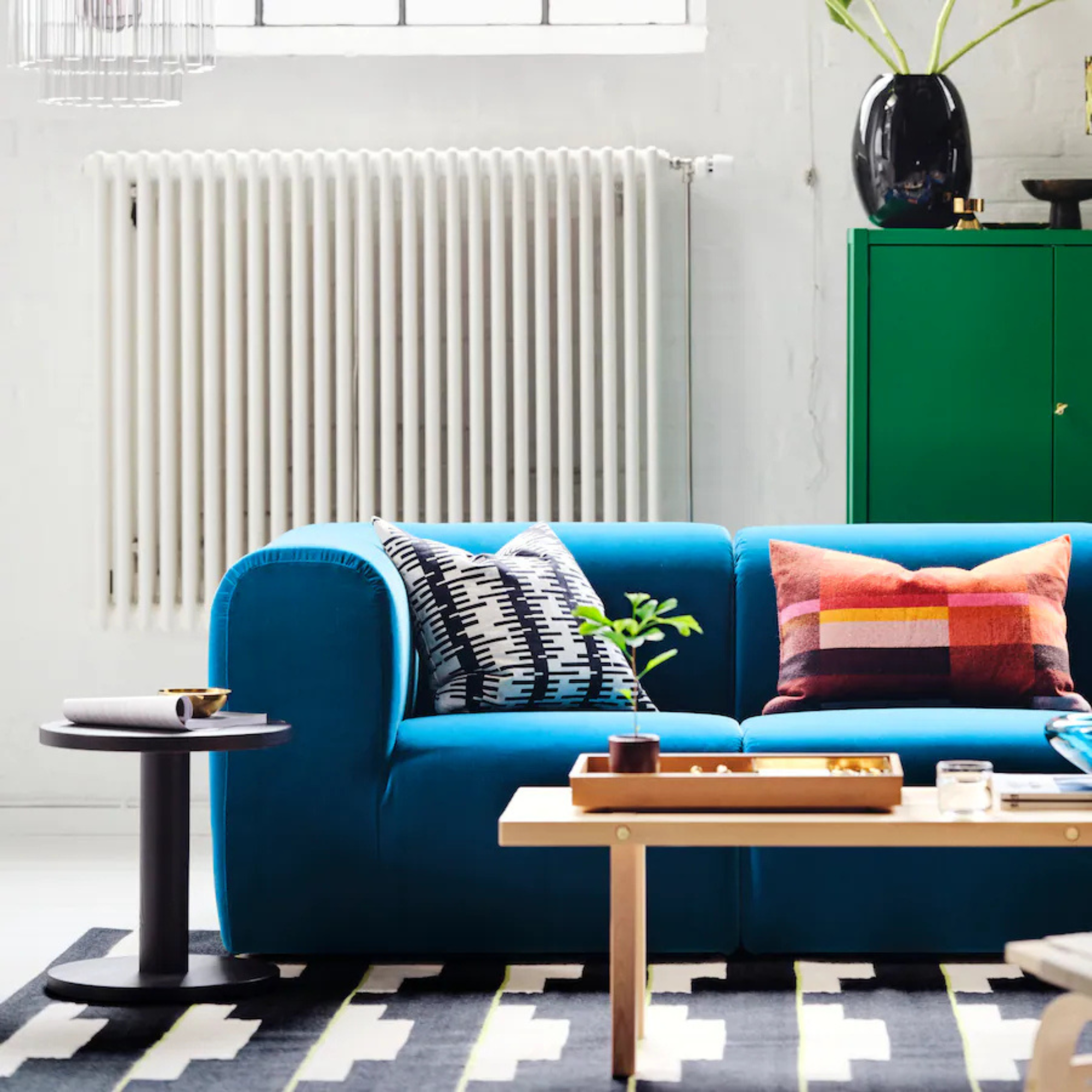 IKEA has just launched a massive 96 new products - but these are the only pieces you need to pay attention to
IKEA has just launched a massive 96 new products - but these are the only pieces you need to pay attention toThe classic STOCKHOLM collection just got even better
By Kezia Reynolds
-
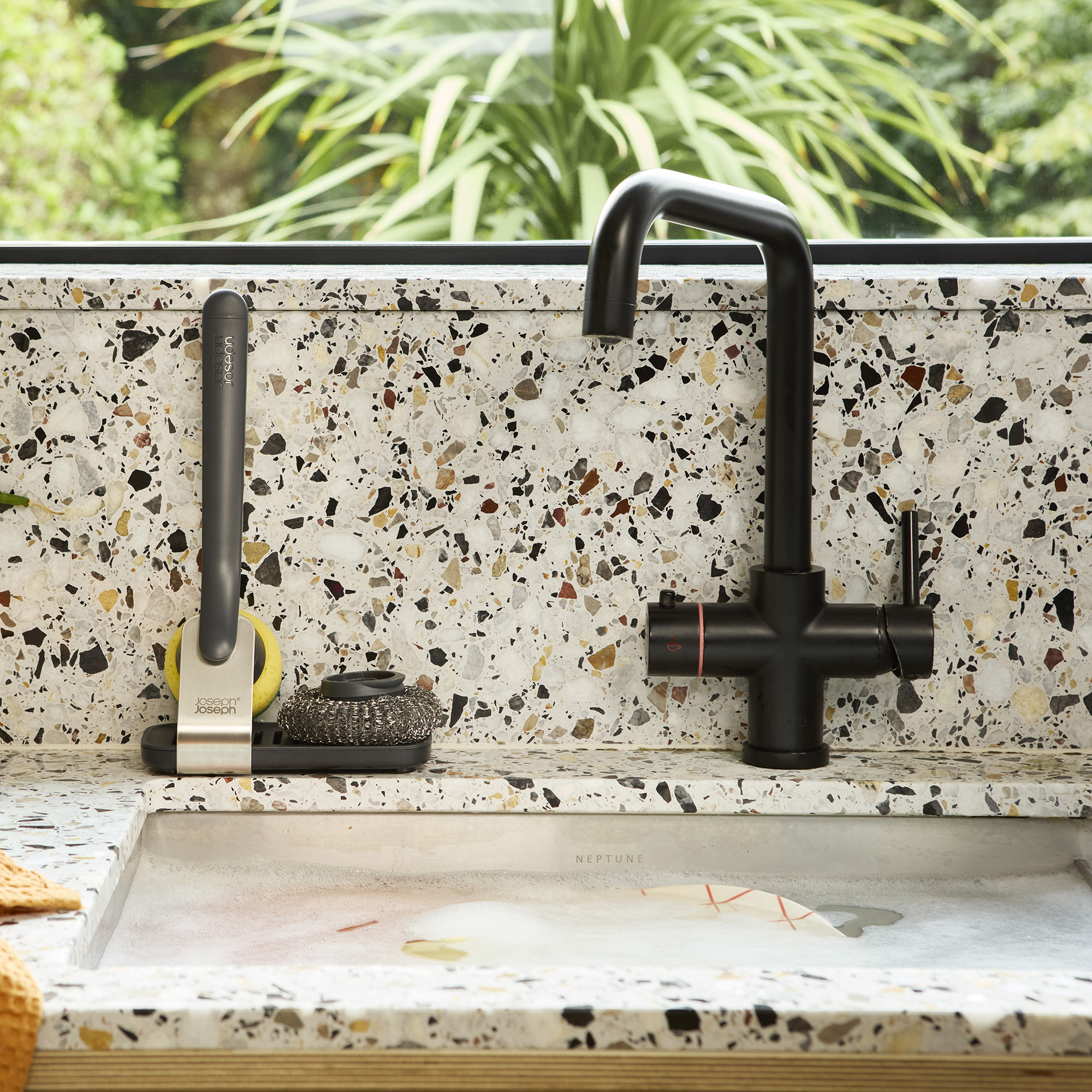 I finally got my hands on Joseph Joseph's genius Sink Tech range - my small kitchen sink has never looked so good
I finally got my hands on Joseph Joseph's genius Sink Tech range - my small kitchen sink has never looked so goodI didn't know stylish washing up accessories existed until I saw this collection
By Holly Cockburn
-
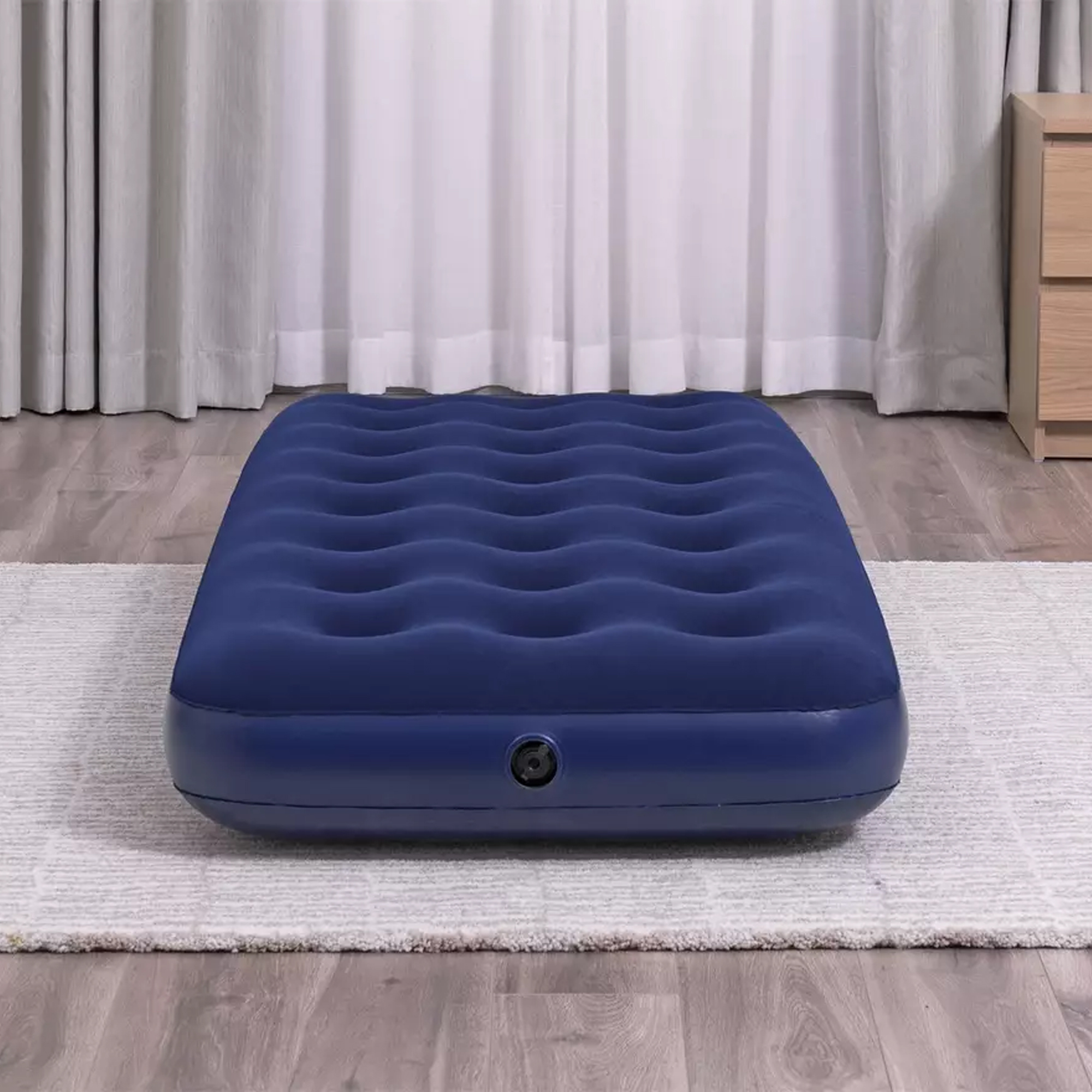 Argos is now selling an air bed for under £12 – if you're hosting guests this Easter Bank Holiday weekend, you'll want this sale on your radar
Argos is now selling an air bed for under £12 – if you're hosting guests this Easter Bank Holiday weekend, you'll want this sale on your radarThis 25% off sale is perfectly timed ahead of Easter weekend
By Amy Lockwood
-
 Rochelle Humes’ living room seating is ‘sofa goals’, and I found an almost identical high street alternative for under £1000
Rochelle Humes’ living room seating is ‘sofa goals’, and I found an almost identical high street alternative for under £1000You can now get the singer and TV presenter's modular sofa of dreams for less thanks to DUSK
By Sara Hesikova
-
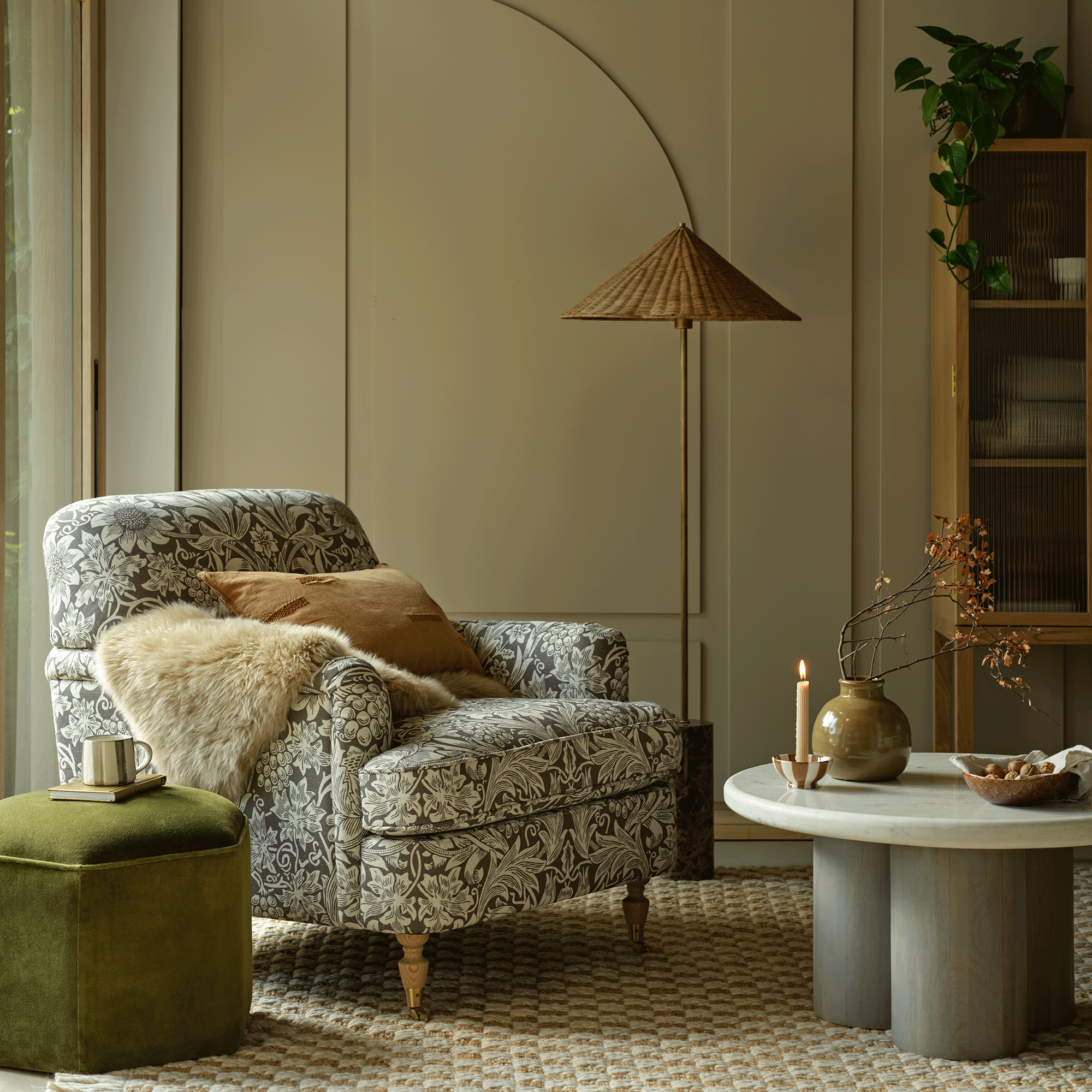 I finally got my hands on the sellout Morris & Co armchair from Habitat, and it looks even better in person
I finally got my hands on the sellout Morris & Co armchair from Habitat, and it looks even better in personIt's back in stock, and well worth the wait
By Rebecca Knight
-
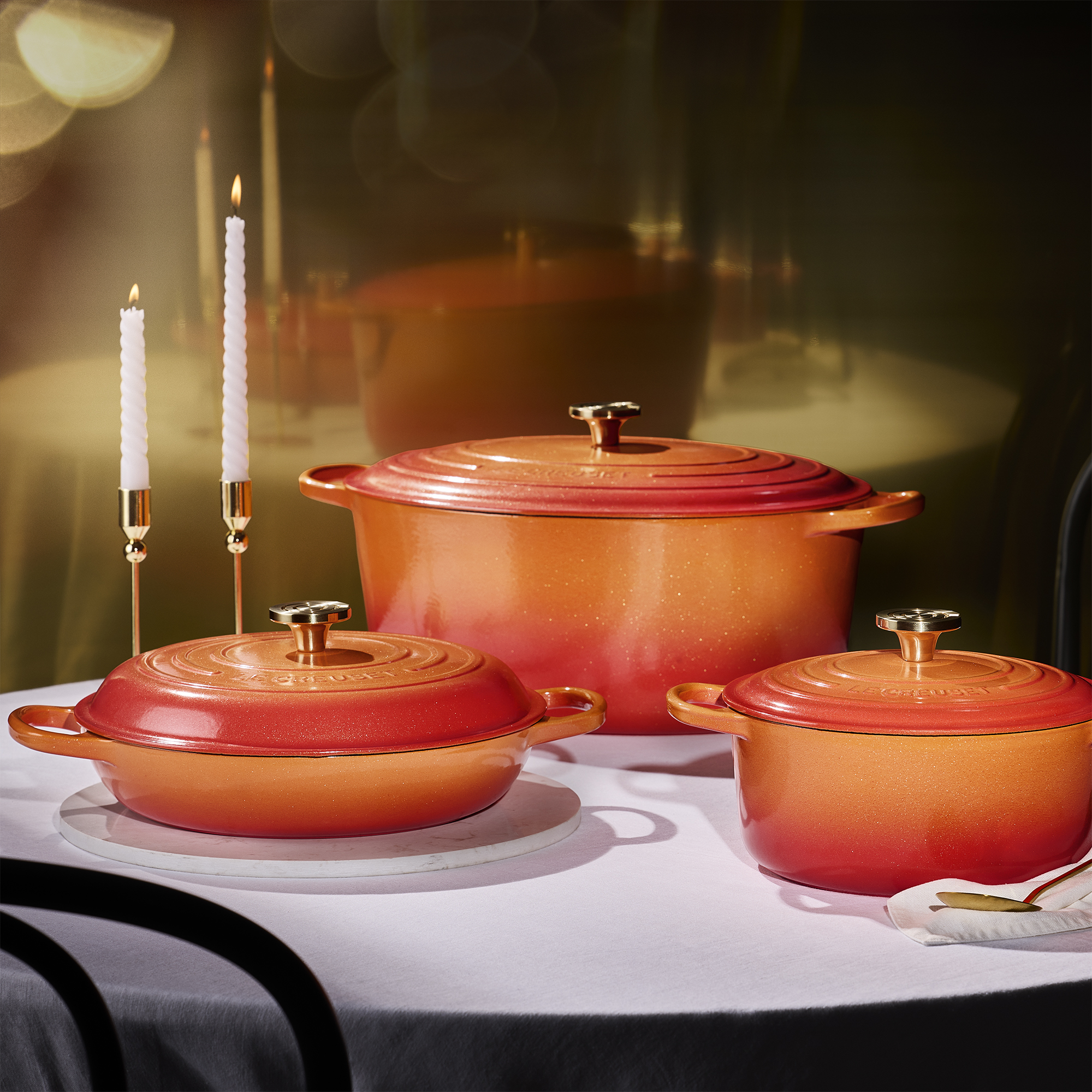 This is the new-but-vintage Le Creuset colour I wish I'd waited to buy my collection in – it's seriously covetable
This is the new-but-vintage Le Creuset colour I wish I'd waited to buy my collection in – it's seriously covetableFlamme Dorée is the brand's new limited edition colourway
By Molly Cleary
-
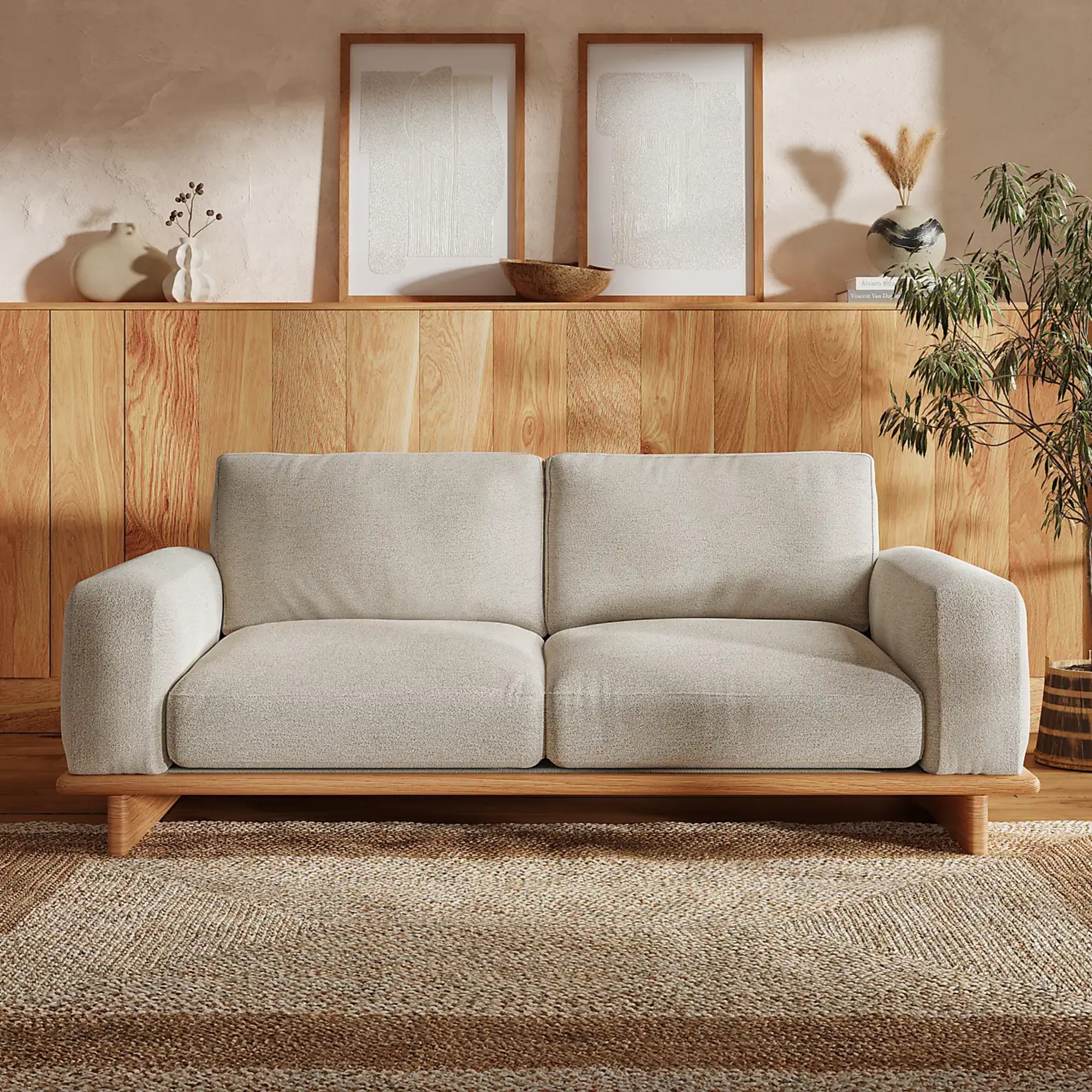 Wooden sofas may sound uncomfortable but that couldn’t be further from the truth – and if you're not convinced, this Dunelm version will change your mind
Wooden sofas may sound uncomfortable but that couldn’t be further from the truth – and if you're not convinced, this Dunelm version will change your mindThis is one of the most unexpected sofa trends of 2025
By Sara Hesikova
